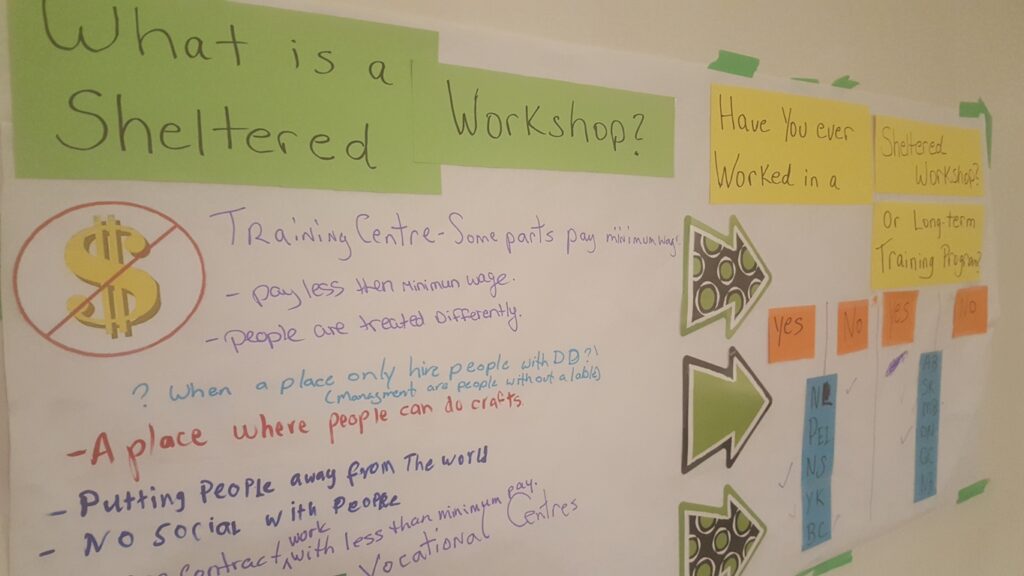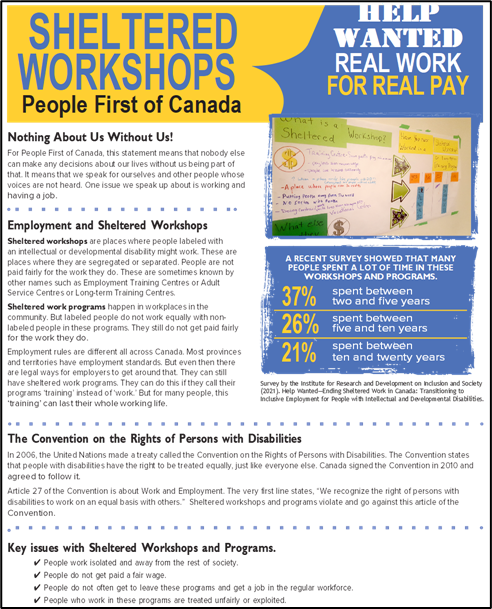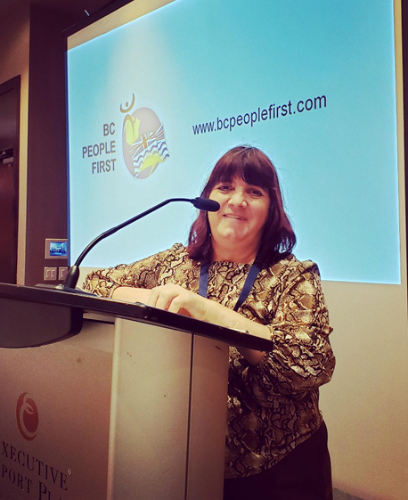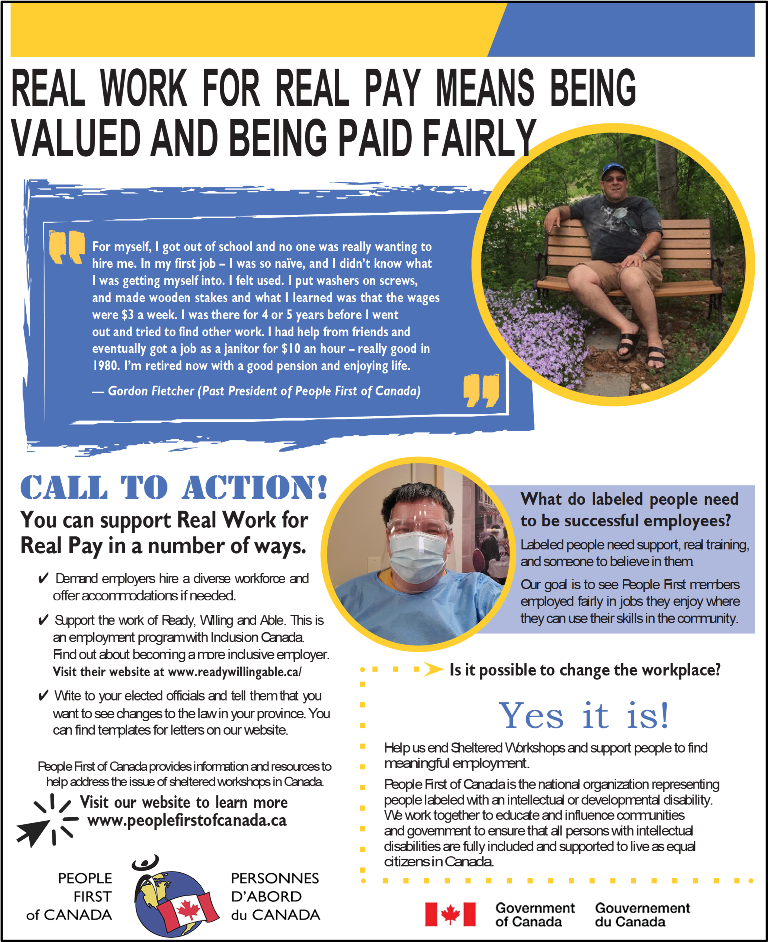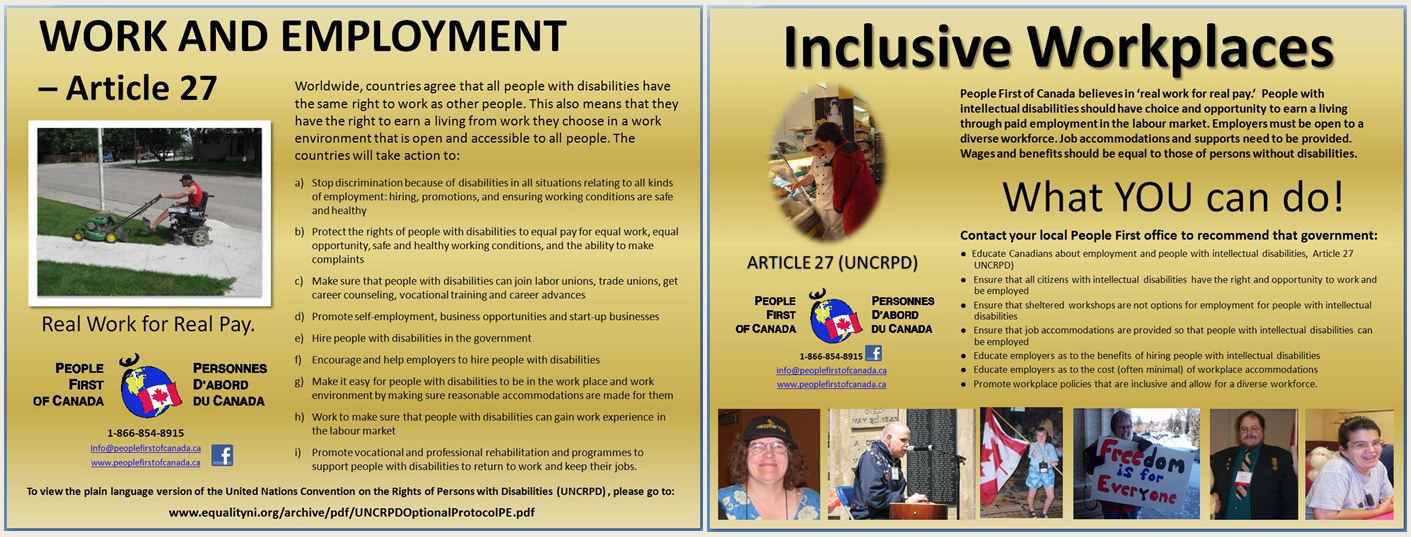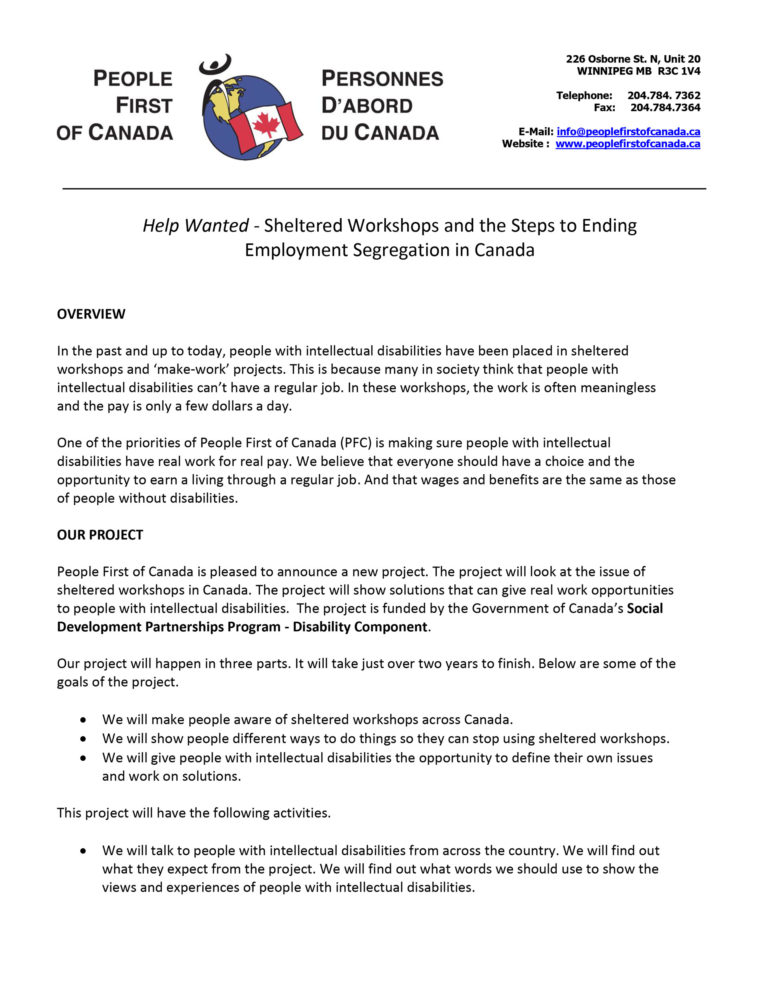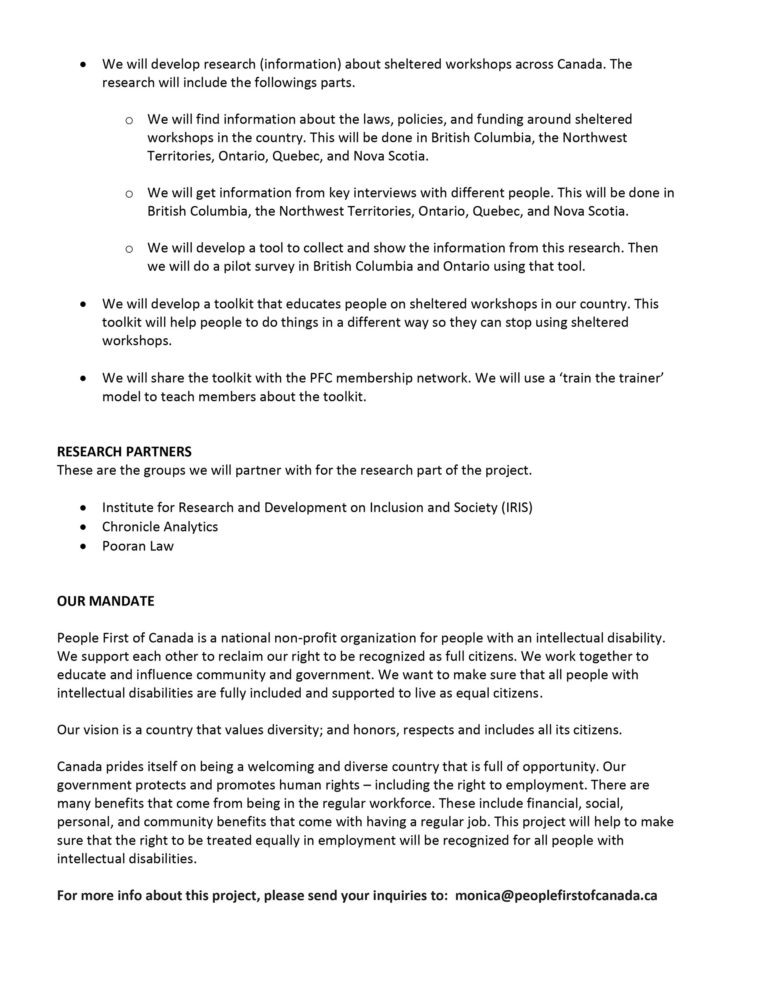Help Wanted - Sheltered work and the steps to ending employment segregation in Canada
Our Project
In 2019, People First of Canada (PFC) started a project about sheltered work. We wanted to have a national conversation about sheltered work. We wanted to get people thinking about this issue and working towards change.
This project is important because employment is one of the five priorities for PFC members. These priorities were chosen by our national board and the issue of sheltered work fits into the employment priority.
We decided to apply for some funding from the federal government and we were happy that they funded this project. We hired the Institute for Research and Development on Inclusion in Society (IRIS) to do national research on this issue. We worked together to gather information and develop the material to explain the issue of sheltered work. We also worked together to come up with recommendations for change.
People First of Canada did our own research as well. We talked to people with lived experience in sheltered work to get their views and thoughts. We did focus groups and we interviewed people to hear their stories. In the end, we put together what we call a sheltered work tool kit. It is a community presentation. We created materials that explain the issue of sheltered work from a People First viewpoint.
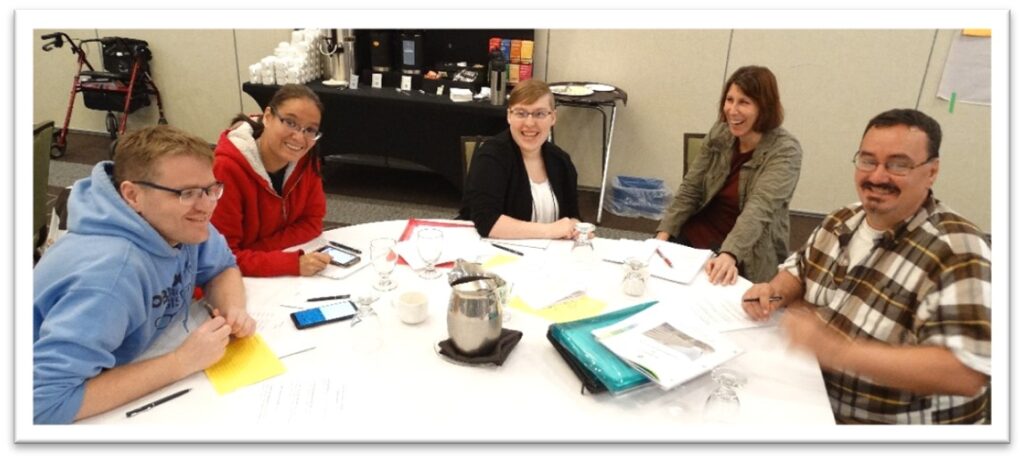 Some communities and organizations are already taking action to solve this problem. PFC is happy about this. We support any changes that help people labeled with an intellectual or developmental disability to have ‘real work for real pay.’ But there are still changes that need to be made. Some provincial and territorial laws need to change. Some attitudes need to change as well.
Some communities and organizations are already taking action to solve this problem. PFC is happy about this. We support any changes that help people labeled with an intellectual or developmental disability to have ‘real work for real pay.’ But there are still changes that need to be made. Some provincial and territorial laws need to change. Some attitudes need to change as well.
The project officially ended June 30, 2021, but the work of PFC around this issue will continue.
We know that this isn’t an issue that will be fixed with one project. We are going to keep working on this and we hope you will too.
Thank You!
We would like to thank all of the People First members who shared their stories with us. We appreciate your courage and strength in sharing your experiences and your dream for equality.
We also want to thank the Government of Canada for funding this project and supporting us as we talk about this real issue.
Links to Material
Here is a link to the Project Summary in English.
Here is a link to the Project Summary in French.
Definitions
What is a Sheltered Workshop?
Sheltered workshops are places where people labeled with an intellectual or developmental disability might work. These are places where they are segregated or separated. People are not paid fairly for the work they do. These are sometimes known by other names such as Employment Training Centres or Adult Service Centres or Long-term Training Centres.
What is Sheltered Work?
Sheltered work happens when a labeled person is working in the community. They might not be segregated, but they are still not working equally beside non-labeled people. They are still not getting paid fairly or paid the same wage as someone who is not labeled.
Here are some frequently asked questions about sheltered work in English.
Here are some frequently asked questions about sheltered work in French.
PFC Presentation Summary
People First of Canada created a public presentation that our members can give in their communities. This one hour presentation can be delivered in person or online. Please get in touch with your local People First chapter for more information or send an email to info@peoplefirstofcanada.ca
Here is the Presentation Summary in English.
Here is the Presentation Summary in French.
IRIS Research
IRIS was hired to lead the research for this project. They worked together with Pooran Law and Chronicle Analytics to gather this research.
At the end of the project, IRIS put together a report of all their research. They also did a summary of this report. Both their full report and the summary are available to read on their website. https://irisinstitute.ca/resource/ending-sheltered-work-in-canada/
Plain Language Summary Report
People First of Canada also created a plain language summary of the report. It is available below.
Here is the Plain Language Research Summary in English.
Here is the Plain Language Research Summary in French.
PFC PRIORITY - WORK AND EMPLOYMENT
People First of Canada believes in real work for real pay. People with intellectual disabilities should have choice and opportunity to earn a living through paid employment in the labour market. Employers must be open to a diverse workforce. Job accommodations and supports need to be provided. Wages and benefits should be equal to those of persons without disabilities.
Employment and careers are a central part of life. Historically, people with intellectual disabilities have been placed in sheltered workshops and long-term make-work projects, on the assumption that people were thought to be unemployable. In these workshops, the work is often meaningless and the pay is merely a few dollars a day. Furthermore, people are congregated and segregated in these ‘work’ placements. People with intellectual disabilities have many talents and gifts that can be used within their communities, and are part of the untapped labour market.
Support to make informed choices about work and careers needs to be provided, and the resources to seek, obtain, and be successful in integrated community employment must be provided. People with intellectual disabilities have the right to the full benefits of employment beyond a pay cheque. There are social, personal, and community benefits that come from being in the regular workforce, not in sheltered ‘work environments.’
PFC'S SHELTERED WORKSHOP PROJECT
Did you know that People First of Canada is doing a project on sheltered workshops? Below is a summary of the project and what we hope to accomplish with this work. If you want to know more about this project, please contact us.

